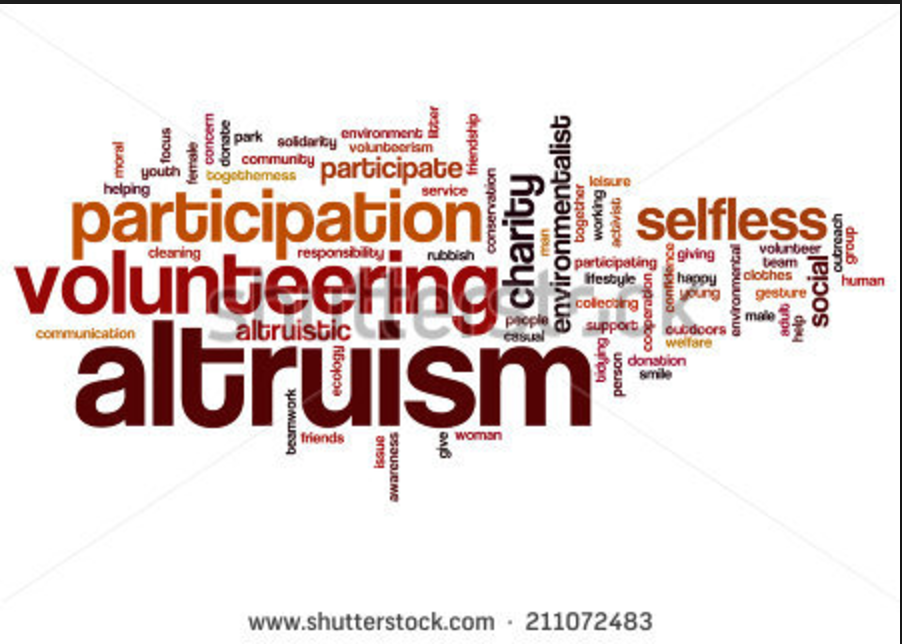
One of the things I did this weekend was complete the final assignments associated with the Positive Psychology course I’m taking through Penn. One of them sticks with me and becomes the basis for this week’s newsletter. The assignment (Fun vs. Philanthropy) was given two weeks ago. Dr. Seligman previewed the assignment with the following statement, “It turns out we’re wired to be outsources. We’re wired to be generous. That helping other people, being philanthropic, increases well-being.”
The assignment was simple. Over the course of a week:
- Plan to do one thing that you find (personally) genuinely fun. E.g. watch a television show, go shopping, read a magazine, etc.; and
- Plan to do one thing that is philanthropic. E.g. do a favor, help a friend with a challenge, volunteer in your community, help plan a celebration, etc.
- Compare these experiences. How do you feel after these experiences? How long does this feeling last?
What did I learn? Fun things end. When they are over, they are over. They carry a nice memory, but very little of redeeming value. Altruistic or philanthropic actions are different. You walk way feeling better about yourself, better about your life and just generally better about everything Simply put, the good feelings associated with the activity don’t end with the activity. They are carried forward and have the potential to impact other aspects of your life.
Steve Taylor continues an examination of this idea in his post, “Why Do Human Beings Do Good Things? The Puzzle of Altruism.” Taylor considers a number of questions and issues. Why are some humans prepared to risk their own life to help save someone else’s? Is there such a thing as “Pure”altruism or is altruism egoic in nature? Is altruism a mistake, a left-over trait from when humans lived in small groups and our instinct to help others was self-serving? Having examined each question he ends the article by considering the role connectedness with others plays in our decision to be altruistic. “It’s this fundamental oneness which makes it possible for us to identify with other people, to sense their suffering and respond to it with altruistic acts. We can sense their suffering because, in a sense, we are them. And because of this common identity, we feel the urge to alleviate other people’s suffering and to protect and promote their well-being —just as we would our own.” In other words, treat others as you would like to be treated!
But what about altruism in a broader sense. How does it fit into a business model? Louis Efron, a contributor to Forbes, considers this issue in his post, “A Company That Demonstrates the Power of Altruistic Leadership” Efron begins by considering the idea of disruptive innovation. “Social innovation is the next major business model disruptor, and Greyston Bakery’s open hiring model is a perfect example of how social justice can drive competitive advantage.” He continues the article with a statement and a question, “It is critically important as a business leader to understand what your employees see when they look at you. Do they recognize in your eyes an interest in yourself or in them? Do you help them find their own beauty and strength or blind them by yours?” The balance of the article examines two additional companies and leaders who’s altruistic approach to business has proved successful. He ends with a self-reflective exercise and a lesson from history, “History has proven that the more you serve others in life, the more abundance shows up in your own life.”
So it would seem that Altruism is about helping others improve their lives. A friend of mine, Eric Savage, let’s that idea guide his life and that of his business, Freedom Toyota. January a year ago Eric was interviewed by the Reading Eagle’s Courtney Diener-Stokes whose article (The Conversation) appeared in the January 19, 2016 Business Weekly supplement. Savage shares that his priority is about the customers and their fulfillment and happiness. “I had a vision for a business that could be more of a contributor to society…..the greater vision is: my business exists for the benefit of others.” Savage’s approach is reinforced in a presentation by Leadership educator Drew Dudley. His 2010 TED Talk entitled, “Everyday Leadership”, calls on all of us to celebrate leadership as the everyday act of improving each other’s lives.
There you have it! Altruism is helping others. I remember the words of Zig Ziglar, “If you help enough other people get everything they want out of life, you’ll get everything you want!” Make someone’s life better this week. Embrace the Challenge,
